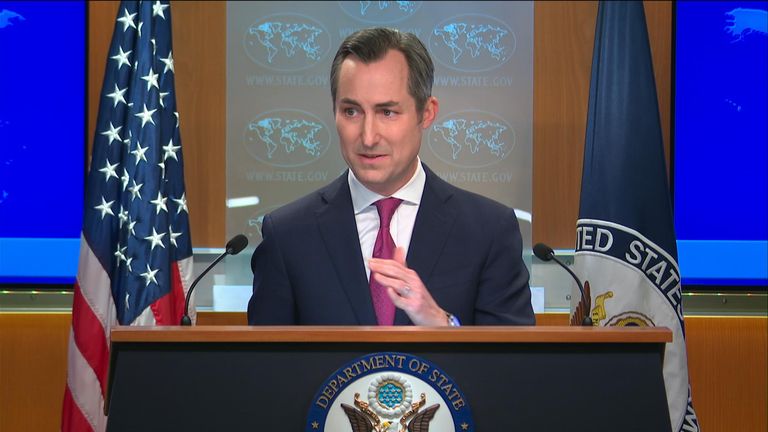PTBP Web Desk
Iranian President Dr. Massoud Pezeshkian is scheduled to visit Pakistan on Saturday following an official invitation extended by Prime Minister Shehbaz Sharif. The visit comes at a critical juncture for the region, amid heightened tensions after the Iran-Israel conflict and worsening conditions in Gaza.
According to diplomatic sources, President Pezeshkian will land in Lahore, where he will pay homage at the mausoleum of Pakistan’s national poet, Dr. Allama Muhammad Iqbal. From there, he will proceed to Islamabad for a series of high-profile meetings with Pakistan’s civilian and military leadership.
This will be Pezeshkian’s first visit to Pakistan as President of Iran and is being seen by analysts as a pivotal diplomatic event aimed at rebalancing regional alliances and reinvigorating bilateral ties.
The Iranian President’s itinerary includes meetings with President Asif Ali Zardari, Prime Minister Shehbaz Sharif, Chief of Army Staff General Asim Munir, and other top officials. His agenda covers wide-ranging topics including:
- Strengthening Pakistan-Iran bilateral relations
- Increasing cross-border trade and economic partnerships
- Enhancing religious and cultural cooperation
- Discussing regional security developments, especially Gaza
- Building on Iran’s past mediation between Pakistan and India
The visit is expected to contribute significantly to expanding economic cooperation between the two neighboring countries, particularly through cross-border trade and provincial partnerships.
Currently, the annual trade volume between Iran and Pakistan stands at approximately $3 billion. Both countries are aiming to significantly increase this volume, with renewed interest in regional integration and shared infrastructure projects, such as the long-discussed Iran-Pakistan gas pipeline.
This high-level visit takes place against the backdrop of escalating regional tensions. In recent months, Iran and Israel engaged in direct military confrontation, including missile and drone attacks. At the same time, the humanitarian crisis in Gaza continues to deteriorate under Israeli bombardment.
Pakistan was among the few countries that publicly condemned the Israeli strikes on Iran. As a non-permanent member of the United Nations Security Council (UNSC), Pakistan played a proactive role in voicing support for Tehran.
The foreign ministry in Islamabad issued strong condemnations of Israel’s actions and called for immediate de-escalation in the region. The solidarity expressed by Pakistan has been noted positively in Tehran, adding a sense of mutual trust ahead of Pezeshkian’s visit.
Another layer of strategic significance in the upcoming visit is Iran’s recent diplomatic mediation between Pakistan and India. Following a tense standoff between the two South Asian rivals in May, Iranian Foreign Minister Hossein Amir-Abdollahian travelled to both Islamabad and New Delhi in an effort to cool tensions.
Tehran’s balanced approach and direct engagement with both capitals helped contain the crisis. President Pezeshkian also held telephonic conversations with leaders from both countries to reinforce the message of peace.
In recognition of Iran’s support, Prime Minister Shehbaz Sharif and General Asim Munir visited Tehran shortly after the conflict was defused, thanking Iranian leadership for their diplomatic efforts.
Iranian media has reported that President Pezeshkian’s delegation includes senior government officials, business leaders, and cultural representatives. Their engagement with counterparts in Pakistan will focus on people-to-people contacts, cultural exchanges, and religious tourism.
Given the shared Shia-Sunni heritage and centuries of historical links, both nations see cultural diplomacy as a cornerstone for durable peace and cooperation. Religious tourism—particularly visits to holy sites in Iran—is likely to be discussed for easing visa regulations and improving transport infrastructure.
Security cooperation, especially in the context of border management and anti-smuggling operations, will also be on the table. Both countries share a long and porous border, which has historically seen issues related to smuggling and insurgent activity.
In recent years, both sides have enhanced collaboration through joint patrols and intelligence-sharing mechanisms. President Pezeshkian is expected to discuss ways to deepen this cooperation further, particularly as both countries face threats from extremist elements operating in the border regions.
President Pezeshkian’s visit represents a chance to reset and elevate bilateral relations between two strategically located Muslim-majority nations. While past ties have been constrained by regional rivalries and economic sanctions, this visit has the potential to mark a new chapter in cooperation.
In an era of multipolar diplomacy, countries like Iran and Pakistan are looking to diversify their alliances and reduce dependency on traditional power blocs. By focusing on mutual interests—from trade and energy to regional stability and cultural heritage—this diplomatic engagement could have long-term implications for regional peace.




